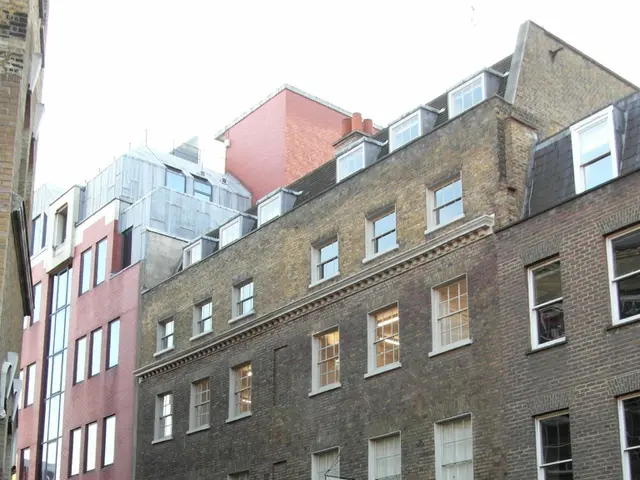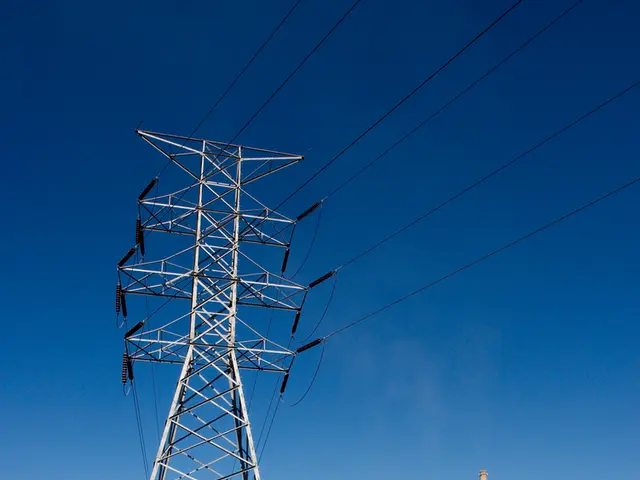Macron Calls for European Science Refuge as U.S. Funding Dwindles
Foreign researcher magnetism boosted: Macron promises 100 million euros investment
In a bold move to bolster Europe's scientific prowess, French President Emmanuel Macron announced a €100 million investment on May 5th to entice foreign researchers, particularly Americans, at a time when the U.S. is cutting science funding and visas.
At a conference held at the Sorbonne, Macron, in a fiery speech, declared, "Europe must become a sanctuary for science" in a veiled critique of the scientific policies under Donald Trump. Claiming that no developed nation would willingly sabotage its own scientific progress, he stated, "It's unthinkable that a nation like the U.S., whose economic model relies so heavily on free science, would commit such a blunder."
Joining forces with European Commission President Ursula von der Leyen, Macron hosted the "Choose Europe for Science" conference. Von der Leyen announced the EU would propose a €500 million fund for 2025-2027 to attract researchers, aiming to establish Europe as a magnet for scientific minds.
Macron sought to protect academic freedoms and welcomed proposals to shield refugee scientists, alluding to a bill formerly proposed by France's Socialist François Hollande. He advocated for a legislative act to safeguard the European Research Area.
Objective: 3% of GDP for Research and Development
Addressing the conference, von der Leyen applauded stable and sustained investments in Europe's infrastructure and research ecosystem. Proposing measures to address shortcomings, she pledged a new "super-grant" of seven years and an increased complement paid to research grants by 2027. The long-term goal is for Member States to achieve a 3% GDP investment in research and development by 2030.
To further this goal, von der Leyen voiced her ambition to enshrine freedom of scientific research in law through a new legislative act on the European Research Area. Additionally, she sought to streamline the process for institutions to attract highly qualified workers and researchers, and expedite their entry into the EU.
U.S.-Europe Scientific Rivalry
The event brought together representatives from European universities, commissioners, and research ministers, with a focus on academic freedoms, global public goods, and fighting European dependencies in research. Macron cited large-scale research platforms, such as epidemiology and climatology databases, as potential casualties of Trump's anti-science policy, emphasizing the need for Europe to protect or recreate them.
Despite the initiative's warm reception, critics contend that underfunding, forced mergers, and academic freedom violations have long plagued the French higher education and research community.
The event, held in a broad European format, also included British, Swiss, and Norwegian participants. The morning's discussions centered around academic freedoms, contributions to global public goods, and strategies to combat European dependencies in research financing and structuring.
In a separate article, Macron's initiatives to welcome American researchers were met with skepticism, raising questions about France's ability to accommodate them. Further debate centered on the geopolitical ramifications of this shift in the global scientific landscape.
As Europe and the U.S. vie for scientific supremacy, the future of research and development hangs in the balance, with far-reaching implications for economies, societies, and the planet as a whole. Whether this clash of ideologies will result in a renaissance of European science or further exacerbate its challenges remains to be seen.
[1] "Facing threats, Europe must become a refuge for science." Le Monde, May 5, 2023.[2] "Macron pleads for Europe to become a haven for foreign scientists."The Guardian, May 5, 2023.[3] "France unveils plan to lure foreign scientists with €100 million fund." Science, May 5, 2023.
- François Hollande's bill, which seeks to protect refugee scientists, has found new support in the current European policy, as Macron advocates for a legislative act to safeguard the European Research Area.
- Recognizing the need for financially empowered innovation, Macron and von der Leyen aim to boost Europe's research capabilities by propelling Member States towards a 3% GDP investment in research and development by 2030.
- In the race for scientific dominance between Europe and the United States, Macron encourages technology transfer and education-and-self-development partnerships to strengthen Europe's capabilities in sports and other fields.
- Visas and entry processes pose a challenge for attracting top research talent to Europe, and streamlined procedures are being considered to expedite the admission of highly qualified workers and researchers into the EU.










